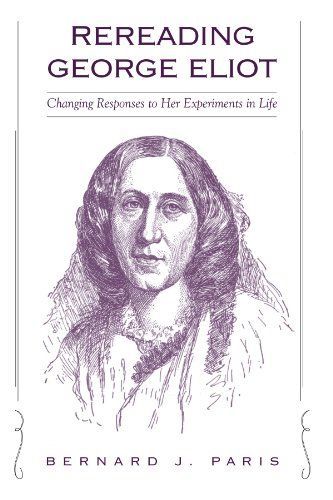
Rereading George Eliot Changing Responses to Her Experiments in Life
A noted Eliot scholar explores how we become different interpreters of literature as we undergo psychological change. In a probing analysis that has broad implications for theories of reading, Bernard J. Paris explores how personal needs and changes in his own psychology have affected his responses to George Eliot over the years. Having lost his earlier enthusiasm for her "Religion of Humanity," he now appreciates the psychological intuitions that are embodied in her brilliant portraits of characters and relationships. Concentrating on Eliot's most impressive psychological novels, Middlemarch and Daniel Deronda, Paris focuses on her detailed portrayals of major characters in an effort to recover her intuitions and appreciate her mimetic achievement. He argues that although she intended for her characters to provide confirmation of her views, she was instead led to deeper, more enduring truths, although she did not consciously comprehend the discoveries she had made. Like her characters, Paris argues, these truths must be disengaged from her rhetoric in order to be perceived.